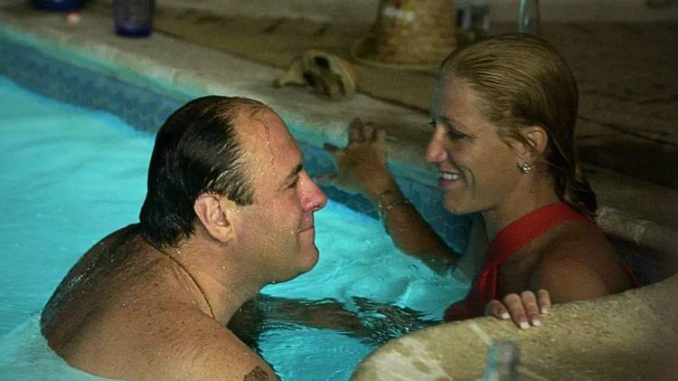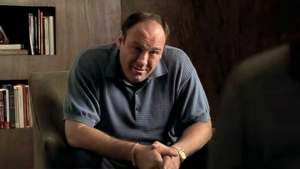
Introduction: The Sopranos – The Godfather of Modern Television
If you want to talk about a show that changed the TV landscape forever, look no further than The Sopranos. Widely regarded as the godfather of prestige television, The Sopranos didn’t just entertain—it revolutionized how stories were told on the small screen. From its complex characters to its genre-defying narrative, this show paved the way for the golden age of TV. Let’s take a journey back and explore why The Sopranos remains the Godfather (yes, we went there) of modern TV.
The Rise of Prestige TV: How The Sopranos Changed Everything
The Beginning of a New TV Era
Before The Sopranos, television was a vastly different landscape. Shows were often limited by strict episodic formats, relying heavily on simple plots and clear-cut resolutions. Enter David Chase’s masterpiece in 1999—a show that blurred the lines between episodic TV and cinematic storytelling. The Sopranos brought an unparalleled level of complexity and maturity to TV, making viewers see the small screen as a medium for intricate, nuanced narratives.

The Antihero: Tony Soprano’s Enduring Legacy
One of the most groundbreaking elements of The Sopranos was the introduction of Tony Soprano (James Gandolfini)—the quintessential antihero. Unlike traditional TV protagonists, Tony was morally ambiguous, balancing his role as a brutal mob boss with his struggles as a husband, father, and a man grappling with his mental health. Tony wasn’t a clear villain or hero—he was a mix of both, and this gray area made him feel more real. The antihero would go on to become a staple in modern television, but Tony was the original.
The Deep and Complex Characters of The Sopranos
Not Just a Mob Story: Exploring Real Human Struggles
While The Sopranos may have been set in the world of organized crime, its true power lay in how it portrayed the inner lives of its characters. Tony’s therapy sessions with Dr. Melfi (Lorraine Bracco) became a hallmark of the show, offering a raw and unfiltered look at his psychological battles. From mental health struggles to complex family dynamics, The Sopranos wasn’t just a story about mobsters—it was about real human beings, making the show profoundly relatable.
Edie Falco and the Iconic Carmela Soprano
Another standout character is Carmela Soprano, played by Edie Falco. Carmela was more than just Tony’s wife—she was a complex, multi-dimensional character. She loved her family but was also complicit in Tony’s illegal activities. Her character provided an insightful look into the challenges of being married to someone involved in organized crime, balancing loyalty with moral conflict.
The Brilliant Writing and Storytelling of The Sopranos
David Chase’s Genius: Breaking Traditional TV Rules
David Chase, the creator of The Sopranos, revolutionized TV storytelling. His ability to balance drama, dark humor, and moments of introspection set the show apart from anything that had come before it. Chase took risks, pushing boundaries with ambiguous plots, open-ended storylines, and deep character development. The show’s writing was layered with symbolism, making it not just a TV show, but a work of art.
Subtle Social Commentary
The Sopranos was more than a story about crime—it was also a platform for social commentary. From the changing dynamics of the Italian-American community to the portrayal of therapy, The Sopranos tackled significant issues that resonated with audiences on a personal level. It was a show that made you think, and in doing so, raised the standard for how TV could handle social and cultural themes.
The Sopranos and the Golden Age of Television
The Show That Started the “Golden Age” of TV
Many TV critics and enthusiasts argue that The Sopranos kicked off what is now known as the Golden Age of Television. Prior to its debut, television was often considered a secondary medium to film. But The Sopranos proved that television could be just as sophisticated and impactful. With its cinematic style, complex characters, and compelling story arcs, the show set the stage for other masterpieces like Mad Men, Breaking Bad, and Game of Thrones.
Tony Soprano: The First True TV Antihero
While antiheroes had appeared in literature and film for decades, Tony Soprano was the first to truly shine in a major TV series. His emotional vulnerability, moral conflicts, and ruthless ambition gave audiences a character they could both love and loathe. He was a product of his environment, yet a victim of his own emotions—no character in TV history was as multi-faceted. Tony’s complexity paved the way for future TV antiheroes like Walter White from Breaking Bad and Don Draper from Mad Men.
Unforgettable Performances and Iconic Characters
James Gandolfini: The Heart of The Sopranos
It’s impossible to talk about The Sopranos without mentioning James Gandolfini. His portrayal of Tony Soprano was nothing short of legendary. Gandolfini brought depth to Tony that made him more than just a mob boss—he made him human. Whether Tony was in therapy, dealing with family issues, or committing violent acts, Gandolfini’s performance made every moment feel raw and authentic.
The Strong Supporting Cast: More Than Just Side Characters
While Gandolfini was the star, the supporting cast of The Sopranos helped elevate the show to new heights. Edie Falco, Michael Imperioli, Tony Sirico, and many others brought a level of excellence that made each episode feel like an ensemble piece. Each character had their own complex storylines, motivations, and arcs, ensuring that viewers were invested in more than just Tony’s journey.
Cinematic Style and Bold Visuals
A Filmic Approach to Television
One of the standout features of The Sopranos was its filmic approach to television. Cinematographer Phil Abraham and the show’s directors utilized cinematic techniques such as long takes, deep focus shots, and symbolic imagery, making it feel more like a film than a traditional TV show. The visual style was integral to the tone and atmosphere of the show, contributing to its prestige.
The Power of Symbolism in The Sopranos
The Sopranos was filled with symbolism, from the recurring motif of the ducks to the various dreams and fantasies that Tony had throughout the series. These symbolic elements were never just filler—they deepened the themes and offered viewers insight into the characters’ psyches. It was a show that didn’t just tell a story—it asked its audience to engage, interpret, and reflect.
The Final Episode: A Legacy That Endures
The Controversial Ending: A Fitting Conclusion?
The series finale of The Sopranos remains one of the most talked-about moments in TV history. Its ambiguous ending, where the screen cuts to black in the final moments, left viewers questioning Tony’s fate. Was he killed? Did he walk away? The open-ended conclusion perfectly encapsulated the show’s essence—life isn’t neat, and sometimes, there are no easy answers.
Why the Ending Was Perfect
While some fans were frustrated by the ending, others believed it was the perfect way to close Tony’s story. It mirrored the uncertainty and danger that defined his life, leaving us with the same unresolved tension that existed throughout the series. The Sopranos didn’t need to offer closure—it needed to reflect the complexity of life itself.
Conclusion: The Sopranos Is the Godfather of Prestige TV
In conclusion, The Sopranos redefined what TV could be. It shattered conventions, introduced complex antiheroes, and raised the bar for storytelling, acting, and direction. Its influence on modern TV is undeniable, and it will continue to be remembered as the Godfather of prestige TV shows. No other series has had the same cultural impact, and The Sopranos remains a touchstone for anyone looking to understand the evolution of television.
Frequently Asked Questions
1. Why is The Sopranos considered the greatest TV show of all time?
The Sopranos is considered the greatest due to its groundbreaking writing, complex characters, and its ability to blend drama with social commentary. It changed the landscape of TV by introducing complex antiheroes and cinematic storytelling.
2. What makes Tony Soprano such an iconic character?
Tony Soprano’s complexity as a character—being both a ruthless mob boss and a vulnerable family man—makes him iconic. His internal struggles with mental health and morality made him relatable and unforgettable.
3. How did The Sopranos influence other TV shows?
The Sopranos paved the way for the Golden Age of TV, influencing shows like Breaking Bad, Mad Men, and Game of Thrones. It introduced the antihero as a central figure and showed that TV could be as sophisticated as film.
4. What was the meaning of the final scene of The Sopranos?
The final scene of The Sopranos is intentionally ambiguous. It leaves Tony’s fate up in the air, reflecting the uncertainty and danger of his life. Some viewers believe it was a fitting end, while others felt unsatisfied by the lack of closure.
5. How does The Sopranos compare to other mob-related shows?
While many shows depict organized crime, The Sopranos stands out for its deep character development and exploration of psychological and emotional themes. It’s not just about crime—it’s about the human condition.